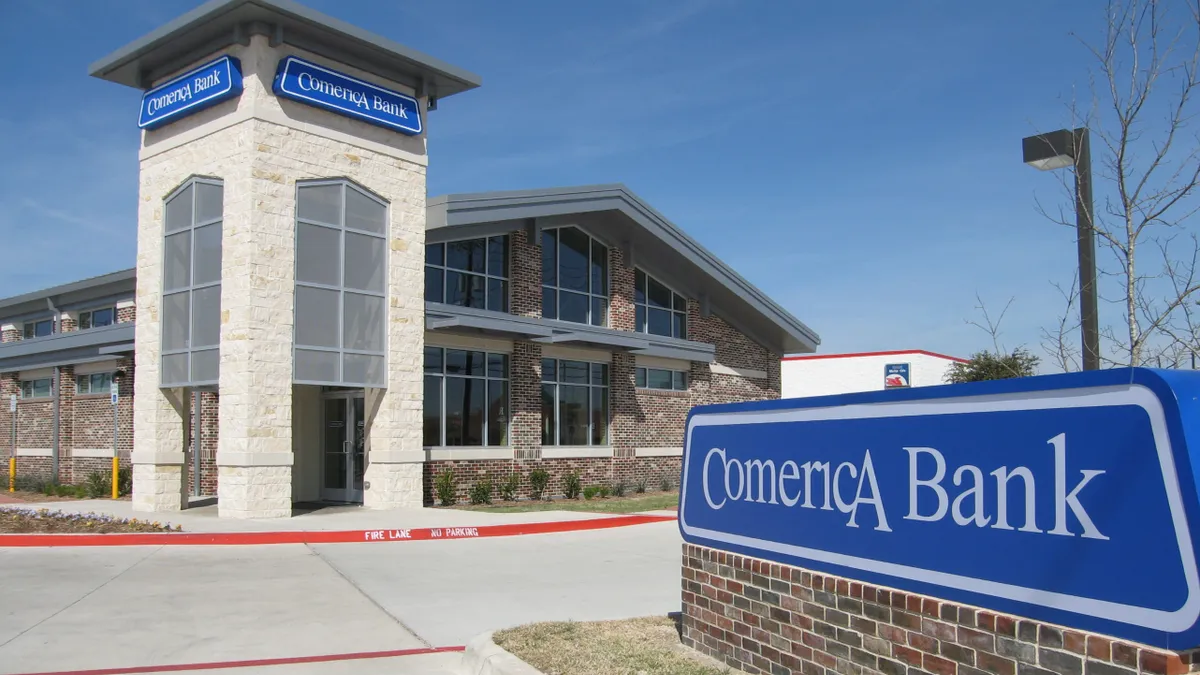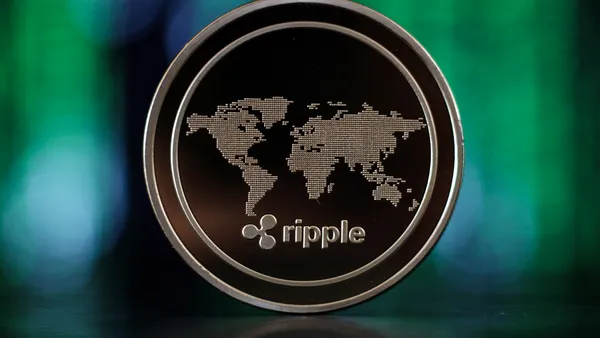Dive Brief:
- Comerica Bank has filed a lawsuit against the Consumer Financial Protection Bureau, asserting the bureau’s investigation of the bank’s handling of the Direct Express prepaid card program is “aggressive and overreaching.”
- The lawsuit, filed Friday in the U.S. District Court for the Northern District of Texas, contends that the CFPB, during its investigation, “has failed to acknowledge that, as Financial Agent of the Direct Express program, Comerica generally acted with the oversight and knowledge or approval of the federal government.”
- Suffering “substantial harm” from the CFPB’s “ongoing and costly” probe – which began in 2021 – Dallas-based Comerica wants a judge to deem the bureau’s investigation unlawful because it oversteps the CFPB’s authority. The CFPB declined to comment.
Dive Insight:
With the lawsuit, the bank also aims to take another shot at the CFPB’s funding structure, which was upheld by the Supreme Court in May. Comerica is pushing for a judgment that the CFPB’s funding structure violates the Constitution and the Dodd-Frank Act.
Additionally, the bank seeks a judge’s ruling that “the Bureau’s regulatory overreach has effectively denied Comerica its constitutionally protected due process rights,” the court filing said. Attorneys representing the bank declined to comment on the lawsuit.
The Treasury’s Direct Express prepaid-card program delivers government benefits to about 4.5 million Americans receiving federal benefits. Comerica has been the banking partner for the program since 2008, having been selected again in 2014 and 2019, according to the lawsuit.
The bank said the Treasury Department, in controlling the Direct Express program and overseeing Comerica as the bank partner, never raised significant concerns over the bank’s handling of the program.
The CFPB has “raised claims that are factually and legally flawed and that exceed its statutory authority,” including that the bank’s customer service practices are unfair, deceptive or abusive. The bureau also accused the bank of failing to put in place sufficient security controls to prevent and detect fraud tied to account takeovers, according to the court filing.
Notably, the bank was informed in July that it wasn’t chosen to continue serving as the bank partner administering the Direct Express program, once the contract expires Jan. 2, 2025.
The contract allows for a potential extension of up to three years past that date, “to facilitate an orderly transition. Under the contract, Treasury will use reasonable efforts to notify the Bank by December 3, 2024, of its exercise of the transition period extension option,” Comerica wrote in its most recent quarterly filing, from Oct. 28.
The bank said the transition “may take some time given the scale and complexity of the program as well as its own transition experience.”
Average deposits with Direct Express accounted for $3.4 billion in the third quarter, the bank said. Card fee income tied to the program was $137 million in 2023, while outside processing expenses were $138 million, Comerica said in the filing.
The impact of losing the contract is hard to predict, but the lender warned it “could be material.”
In the quarterly filing, Comerica’s mention of the CFPB probe notes the bureau “is investigating certain of the Corporation's practices, and the Corporation has responded and continues to respond to the CFPB.”
Although Comerica said it couldn’t predict the outcome of discussions with the bureau, “fines, penalties, restitution or alterations in the Corporation's business practices” could stem from them, “and may result in increased operating expenses or decreased revenues,” the filing said.
Last year, American Banker reported the bank ran into a “serious contract violation” with the Direct Express program, when it allowed third-party vendor i2c to field fraud disputes and handle cardholder data at an office in Lahore, Pakistan. The contract had required all services be provided in the U.S. or its territories.
The Northern District of Texas, which includes Dallas, has become known as a conservative-friendly district. Ten of the 11 active judges in the district court were appointed by Republican presidents, TechCrunch reported.
Last month, the Bank Policy Institute, the Kentucky Bankers Association and Lexington, Kentucky-based Forcht Bank sued the CFPB in the U.S. District Court for the Eastern District of Kentucky, charging the bureau with overstepping its authority in issuing its open banking final rule.
The banking industry has shown a greater willingness to challenge regulators and to bring cases in what are perceived to be more friendly circuits and district courts, David Sewell, a partner and U.S. head of the financial services regulatory practice at law firm Freshfields, noted last month.
At the American Bankers Association convention Oct. 28, JPMorgan Chase CEO Jamie Dimon argued the industry is right to challenge regulators. He called the regulatory environment for banks an “onslaught” and said it was “time to fight back.”














